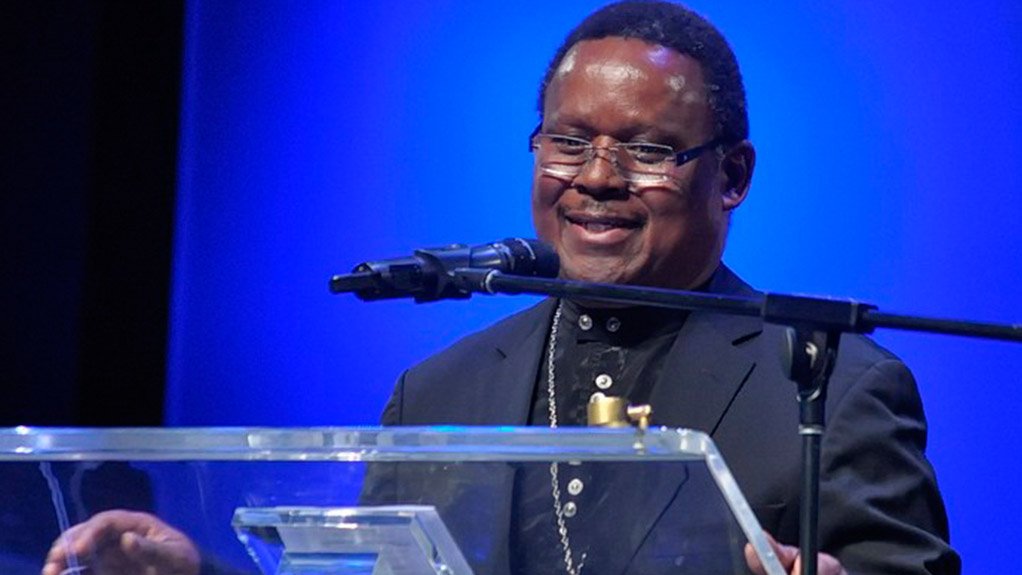Militias posted around former president Jacob Zuma's Nkandla home, who are vowing to protect him from arrest, could possibly lead to "another Marikana", Reverend Frank Chikane has said. It is something he fears.
Chikane is one of those at the head of a new civil society grouping of 337 individuals and organisations, Defend Our Democracy, which on Thursday issued "a call to action" to defend South Africa's democracy.
With reference to the men in camouflage keeping watch outside Zuma's home, he said:
The people who are there, whoever you call them, have crossed the line. Once you make an announcement that we’re going to make sure that someone is not arrested, even if a court has made a ruling, then you’re outside the law.
Chikane added those involved in the movement were lobbied in the last two weeks after Deputy Chief Justice Raymond Zondo asked the Constitutional Court to impose a prison sentence on Zuma for defying that court's ruling that he must give evidence at the state capture inquiry.
Zondo's request prompted people, who call themselves the Umkhonto weSizwe Military Veterans (MKMVA), to position themselves outside Zuma's home, vowing to protect him.
But Chikane said this was not about the military veterans, as they would not violate the country's laws.
Zuma already had security provided for him by the state, he added, saying it was not right to say the police was not allowed to go onto his property to arrest him.
"This is not about Zuma as a person, but about the law. If you allow this to happen, an ordinary criminal would do the same. They could stop the police from arresting a drug kingpin. What would you do if that happens?"
He said: It is not about Zuma, the ANC or the [national general council], but it’s about the fact that, for the first time in this country some individuals say even if a court made a ruling, we are going to make sure that that ruling is not implemented by the police if they come here. That’s lawlessness.
Chikane has denied the initiative, which, among others, includes a number of veterans from the ANC and its alliance partners, labour federation Cosatu and the SACP, played into ANC factional politics.
"I've never seen such a spread of leaders of this country who committed themselves to one thing."
"This has nothing to do with the ANC. This is about the people of South Africa," he said, adding they were "the last line of defence" when everything else failed. "This is about the threat to the rule of law.
"We don't want to be one of those countries where militias go around with guns and weapons and threaten people. Anyone who has committed a crime must go to jail."
Chikane added the country had experience a difficult decade. "We have an economy going down into junk status, our [state-owned entities] are collapsing."
The movement includes a number of leaders who were either close to former president Thabo Mbeki or Ramaphosa, as well as former civil servants who blew the whistle on state capture, like Ivan Pillay, Cynthia Stimpel and Johann van Loggerenberg.
But Chikane said it had nothing to do with the ANC's upcoming national general council, planned for May, or the power struggles in the party.
"Ordinary people kept on hoping that this thing will self-correct - and that the ANC will fix itself. [They thought:] 'let's go on with life as if nothing is happening'. When junk status hits it hits all of us, especially the poor, not just the ANC," he added.
Xolani Dube from the Xubera Institute said Defend Our Democracy was a counter to the radical economic transformation faction (RET) in the ANC, with MKMVA spokesperson Carl Niehaus recently formalising it into establishing a "RET national operations committee".
Dube added he could not see the RET faction surviving with so many civil society organisations, business, as well as the DA speaking out against it. "It's going to be defeated."
He said, however, the RET faction had done its homework and organised well within the ANC's branches, which meant the other faction had to take their fight outside the ANC.
"Their strategy is to put pressure more on the judiciary to prosecute, and once they do this to prosecute, they're weakening the RET."
Dube added democracy was being contested by different interests within the political elites. "The political elite are fighting for their own preservation."
Having a more homogenous voice in the political fraternity could, however, be good to strengthen investment and business confidence, he said.
EMAIL THIS ARTICLE SAVE THIS ARTICLE
To subscribe email subscriptions@creamermedia.co.za or click here
To advertise email advertising@creamermedia.co.za or click here











